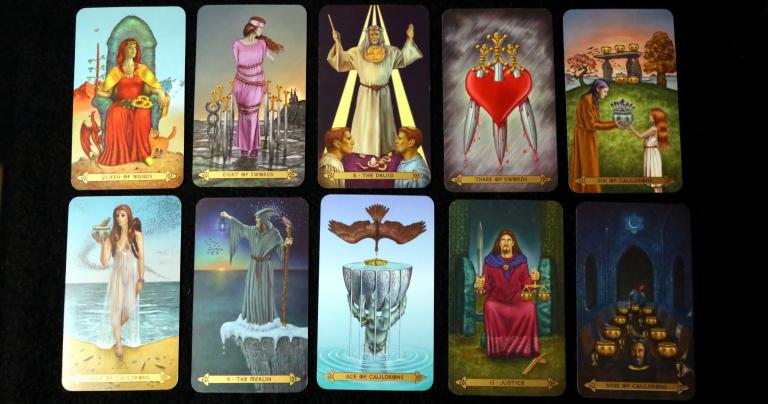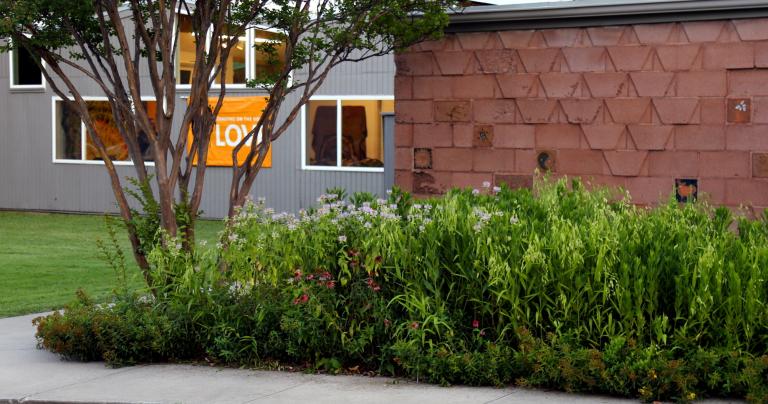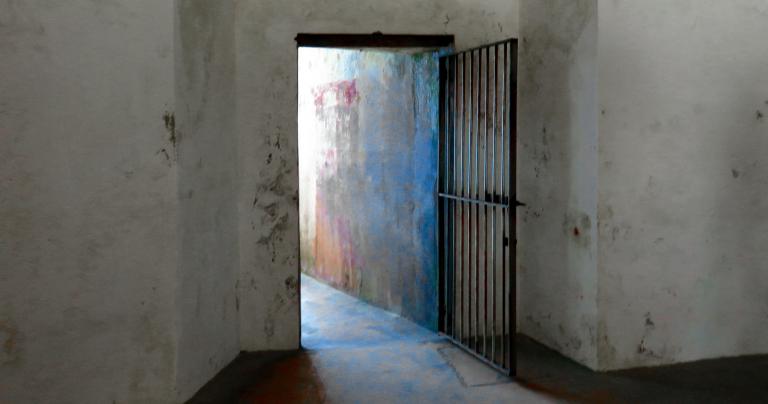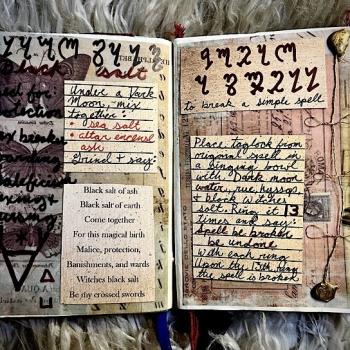One of the first tools I bought when I began my Pagan journey was a deck of Tarot cards. It took me 14 years to learn to read them properly.
I started out trying to teach myself how to read with the Little White Book. I bought several other books, and worked diligently through one of them. I did daily card pulls and weekly readings. I took an in-person class. I got better, but I never got good enough to read with confidence.
When I took the same in-person class for a second time, then everything clicked. I finally knew the “standard” meanings well enough to not have to look them up, which gave me the confidence I needed to let the cards speak to me.
Repetition matters.
A few years ago I had a conversation with a UU minister about establishing a liturgical calendar for our church. There are a few things we do every year: Flower Communion, Water Communion, Christmas, Easter, Winter Solstice… Her idea was to take the things we do most years – National Coming Out Day, Mother’s Day, Father’s Day, Remembrance Sunday – and make them a regular thing, so we’d end up with 12 to 15 things we observe every year.
Her logic was that these local traditions would become shared community experiences, which over time would build a sense of unity in the church. It made good sense to me. Plus there’s something that just feels right about a liturgical calendar – it’s something I missed growing up in a small Baptist church. They thought liturgical calendars were a Catholic thing and therefore something to be shunned.
But repetition matters.
My Pagan life is built on a foundation of daily spiritual practice, weekly offerings, and seasonal celebrations. We just passed Lughnasadh and the Fall Equinox is coming up in September. Then comes Samhain. The Wheel of the Year keeps turning.
Year in and year out my posts on Beltane, Samhain, and Imbolc are among the best read of anything on the site. Lughnasadh is the most overlooked of all the modern Pagan holy days. Still, I could no more skip Lughnasadh than I could skip my evening prayers. Each time I celebrate it I have new experiences that take my practice just a bit deeper.
Sometimes I struggle when I’m composing public rituals. I know that someone in the assembly will be attending their first Pagan ritual and will need to be introduced to some new-to-them concepts.
I also know other people will be attending their 40th or 50th or 100th ritual and need to be engaged. I tend to rely on the opening liturgy (circle casting, quarter calls, invocations and offerings) to set the table for everyone and then try to write the main working so that newcomers can get the basics and experienced folks can go deeper.
Sometimes that works, while other times I satisfy one group but not the other. My favorites are when new people tell me “I don’t know what that was, but it was real and it was good.” My least favorites are when people say things like “it was nice” and then never show up again. If it’s just not their thing, fine. But I hate to lose people because they didn’t understand what was going on.
It gets harder here on the blog. I write, I publish, and then it’s here on the internet for anyone and everyone to see. For some it will be repetitious. For others, it will be the first time they’ve seen that particular concept, even though I’ve written about it six or eight times before.
(I’ve been blogging for 11 years. Core ideas and themes tend to be repeated. Sometimes I have new insights into a topic, sometimes someone else brings up an old topic, and sometimes I flat-out forget I wrote about something four years ago. My memory is good – it’s not that good.)
But bloggers have very little responsibility to readers beyond the ordinary need to speak the truth as we see it. I write what I feel like writing, or what various Gods tell me to write. If you like it, great. If you don’t, you can read something else. My audience continues to grow, so most of you must like what you read… or if you don’t, you find it engaging enough to mentally argue with me (I do that with a few religiously conservative bloggers. Occasionally I rebut them here, but mainly I just want to know what they’re thinking).
Based on comments and other feedback, I tend to assume most of my audience is “advanced beginners” and “early intermediates” (most, but not exclusively – I have some readers who are more experienced and knowledgeable than I am). So I usually assume you know the basics, and I add links to previous posts for those who don’t.
But there will be repetition.
It gets really hard when I’m teaching. When the homework responses starting coming in for Paganism In Depth – the On-line Class, it quickly became apparent that while none of the students are raw beginners, some are more experienced than others. I made the decision to include more foundational work in the early modules, and then to explore advanced material in the later ones. I’ll find out over the next couple weeks how well that works. To say I’m nervous would be an understatement.
(Module 3 – out of 6 – was just released today, but the course is delivered on-demand. If you wanted to sign up for it but didn’t, you can do so at any time.)
While I’ve always understood the advantages of in-person teaching, I’m starting to have a deeper appreciation for traditions that only teach face-to-face, where you can judge for yourself when someone is ready for deeper material and when they aren’t. Of course, then they call you a gatekeeper when you tell someone they’re not ready and they think they are. Or they call you something even worse when pull back the curtain and show them something they weren’t prepared to see.
And of course, in-person teaching requires that teacher and student actually be in the same place at the same time, which raises its own set of issues.
In this case, adding some repetition for the more advanced students helps insure the beginners have a decent foundation for the deeper work. So that’s the choice I made.
Our mainstream culture tells us we should always be looking for the “new and improved” – mainly so we’ll keep buying stuff we don’t need and don’t really want. Reality is that there’s a place for new stuff, but also a place for old stuff that still works well.
There’s a need to grow and expand our magical and spiritual skills, but there’s also a need to reinforce our foundational practices every day. Even Lebron James practices free throws.
When we move into a community setting, there will always be a conflict between those who need more basic stuff and those who are eager (and ready) for depth. I’m fond of tiered groups and self-selection, but ultimately decisions have to be made, and hopefully we choose to support our communities even when the decision isn’t exactly what we want.
Repetition helps us learn. It’s how we build traditions. It’s how we build community. And as with my Tarot experience, you never know when one more seemingly-needless repetition will cause something to click and you’ll finally understand something in the depths of your soul.
And now if you’ll excuse me, it’s time for the next round of my daily prayers.























